With the A Peer Apart award, SPE recognizes those dedicated individuals involved in the review of 100 or more papers for SPE’s peer-reviewed journals.
Peer review is an essential part of scientific publishing and helps to ensure the information contained in a journal is well supported and clearly articulated. Volunteers who commit their time to reviewing papers make substantial contributions to the technical excellence of our industry’s literature.
Each year, SPE typically has more than 1,400 individual reviewers submitting more than 3,500 reviews for SPE’s various journals. These committed volunteers come from a variety of backgrounds, including academia, service and operator companies, and consultancies from around the world.
Peer review is a demanding and time-consuming task. Over time, the individuals receiving this honor have volunteered hundreds of hours to the Society, making SPE journals a valuable resource to authors and the industry. It is an outstanding accomplishment for those who reach the milestone of reviewing 100 papers.
This year, 10 individuals join this elite group, bringing the total membership of A Peer Apart honorees to 221 dedicated members.
Please join us in congratulating the 2024 honorees.
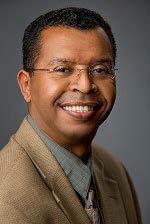
Ramadan Ahmed is a professor of petroleum engineering at The University of Oklahoma (OU) and the director of OU’s Well Construction Technology Center. He previously served as a senior research associate and adjunct professor at The University of Tulsa. With more than 30 years of experience in industry and academia, Ahmed's research interests span nanotechnology, cement degradation, tubular corrosion, drilling fluids, wellbore hydraulics, cuttings and solids transport, and downhole instrumentation. He has authored or coauthored more than 160 research and technical articles and contributed to three book chapters. As an active SPE member, he has served on conference committees and as an associate editor for SPE Drilling & Completion.
Ahmed holds a PhD in petroleum engineering from the Norwegian University of Science and Technology (NTNU).

Mark Brinsden is owner of Vektor Energy Inc., an upstream consultancy, a member of the Pecten Consultancy group, Advisor–WT Bell Inc., a fellow of the Energy Institute, former chair of the API 19b Committee, and founder and former president of the International Perforating Forum. SPE has long been a key part of his life in the upstream community, with Brinsden serving as an SPE Distinguished Lecturer, an SPE Distinguished Member, mentor, former chair and member of several SPE committees, and as an SPE technical reviewer and associate editor for many years. His career, spanning from SLB, service company startups, upstream consultancies, and Shell over several continents, has proved to be an interesting and fruitful life in upstream. SPE remains one of the most significant ways Brinsden contributes back to the industry.
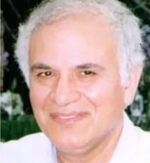
Abbas Firoozabadi is a distinguished research professor at the Department of Chemical and Biomolecular Engineering at Rice University, and the director of the Reservoir Engineering Research Institute (RERI) in Palo Alto, California. His research and teaching center on thermodynamics and higher-order numerical simulation in the subsurface. Firoozabadi’s current work focuses on molecular engineering of CO2 viscosifiers to broaden their use, fracturing of rocks in relation to subsurface energy production, large- scale numerical simulation of CO2 sequestration in aquifers, and stewardship of the environment. He has authored two books on thermodynamics of hydrocarbon energy production and is the author or coauthor of some 270 journal papers. Firoozabadi’s awards include the SPE Anthony F. Lucas Gold Medal and the SPE/AIME Honorary Membership. He is a member of the US National Academy of Engineering (NAE), and an international member of the Chinese Academy of Engineering (CAE).
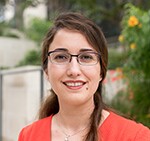
Zoya Heidari is a professor in the Hildebrand Department of Petroleum and Geosystems Engineering at The University of Texas at Austin. Before joining UT-Austin, she was an assistant professor at Texas A&M University in College Station from 2011 to 2015. She has been the founder and the director of the UT-Austin Industrial Affiliates Research Program on multiscale rock physics since 2016.
Heidari is the recipient of the 2023 SPE International Formation Evaluation Award, 2021 Society of Petrophysicists and Well Log Analysts (SPWLA) Distinguished Technical Achievement Award, 2020 SPWLA Young Professional Technical Award, 2019 European Association of Geoscientists and Engineers Arie van Weelden Award, 2019 SPE/AIME Rossiter W. Raymond Memorial Award, 2019 SPE Distinguished Membership Award, 2017 SPE Cedric K. Ferguson Medal, 2016 SPE Gulf Coast North America Regional and Southwestern North America Regional Formation Evaluation Award, and the 2015 SPE Innovative Teaching Award. She has supervised 33 graduate students and published more than 240 papers. She served as the vice president of education for SPWLA (2016–2018), a member of the SPE Reservoir Advisory Committee, and an executive editor for the SPE Journal.
She holds a PhD in petroleum engineering from UT-Austin.
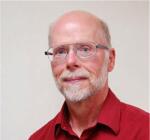
W. Scott Meddaugh joined Midwestern State University in 2013 as the R.L. Bolin Distinguished Professor of Petroleum Geology. His prior industry experience includes 32 years with Chevron, where he worked on a large number of reservoirs worldwide in various technical and, ultimately, management roles. Beginning in the 1990s, Meddaugh worked on large and some not-so-large reservoirs in Kuwait, Saudi Arabia, the Partitioned Zone (Saudi Arabia and Kuwait), the US, Canada, Australia, Venezuela, Argentina, Nigeria, Angola, Russia, the North Sea, China, Indonesia, and Kazakhstan. He also worked on shale oil projects in the US in the 1980s and was the codeveloper of Chevron’s first widely used workstation-based software for reservoir characterization and 3D reservoir modeling in the late 1980s. He developed and presented numerous company, partner, and public courses in geostatistics, reservoir modeling, and uncertainty analysis while with Chevron, and his current research interests include reservoir characterization, forecasting, and uncertainty characterization and assessment.
Meddaugh is currently a member of the SPE Reservoir Advisory Committee, has served as an associate editor for SPE Reservoir Evaluation & Engineering, has been a technical reviewer for JPT, and previously served as a reviewer for SPE Economics & Management. He has also served on SPE program committees and has been a technical reviewer and session chair for many US and international AAPG and EAGE meetings. Meddaugh has written numerous technical papers and presented many talks at SPE, AAPG, EAGE, and other regional and international technical society meetings. He was an SPE Distinguished Lecturer during the 2015–2016 season and was selected to provide an updated talk as part of SPE’s 2017–2018 series of “Best Distinguished Lectures” of the past several years.
Meddaugh holds an MS degree in geology from the University of Wisconsin–Milwaukee and a PhD in geology from Harvard University.
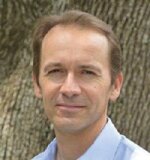
Stéphane Menand is a technical fellow at Helmerich & Payne (H&P), based in Houston. Previously, he held a research position at Mines ParisTech. Menand has 25 years of experience in the oil and gas industry, first as a research and development project manager in drilling engineering, more specifically in directional drilling, drillstring mechanics (torque, drag, and buckling), drilling dynamics, and drill-bit performance, and then as CEO for the company DrillScan, recently acquired by H&P. He has authored several SPE and other technical papers (50+) and patents and served as an associate editor of SPE Drilling & Completion, now under SPE Journal.
Menand holds a PhD degree in drilling engineering from Mines ParisTech.
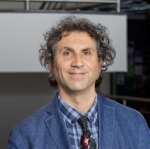
Evren M. Ozbayoglu holds the Jonathan Detwiler Chair as a full professor in the Petroleum Engineering Department at The University of Tulsa (TU). Additionally, he serves as the director of The University of Tulsa Drilling Research Projects. Ozbayoglu began his career as a full-time faculty member at the Middle East Technical University (METU) and continued until August 2009, after which he joined TU. His extensive publications include more than 200 peer-reviewed journal papers, conference papers, and contributions to the SPE Textbook Series. Engaged in industrial projects, his research spans drilling and well-completion topics including non-Newtonian fluid flow, underbalanced and managed- pressure drilling, tubular mechanics, data analytics, and more. He served as an associate editor for SPE Drilling & Completion and has received notable awards, such as Outstanding Technical Reviewer for SPE Drilling & Completion and SPE Journal, 2013 SPE Mid-Continent North America Regional Distinguished Faculty Award, 2019 SPE Mid-Continent North America Regional Drilling Engineering Award, and 2020 SPE Distinguished Membership Award.
Ozbayoglu holds a BSc degree and an MSc degree from METU and a PhD from TU.
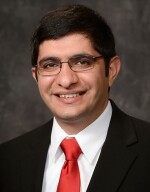
Hadi Nasrabadi is an associate professor and the Aghorn Energy Career Development Professor at the Harold Vance Department of Petroleum Engineering at Texas A&M University. Before joining Texas A&M University in 2013, he worked for 5 years at the petroleum engineering program at Texas A&M University at Qatar as an assistant professor. His research interests include hydrocarbon phase behavior and flow in shale reservoirs, CO2 sequestration and enhanced oil recovery, machine learning, and hydrogen storage.
Nasrabadi holds a BSc degree in civil engineering from Sharif University of Technology, Tehran, Iran, and a PhD in petroleum engineering from Imperial College.

Dongmei Wang is an associate professor in the Harold Hamm School of Geology and Geological Engineering at the University of North Dakota. Since 2009, she has been principal investigator for multiple research projects funded by the US Department of Energy and industries related to enhanced oil recovery (EOR) and geothermal sweep efficiency from Williston Basin in North Dakota, D-J Basin in Wyoming, Eagle Ford in Texas, and heavy-oil reservoir on the Alaska North Slope. Wang has been a section officer of the SPE Williston Section since 2011, and a judge for the SPE Rocky Mountain North America Region Awards since 2021. She has published more than 50 papers in chemical EOR.
Before 2009, Wang played a key role in more than 40 projects related to reservoir engineering, production, and case design in EOR in the oil fields in PetroChina, as well as oilfield development case designs for Kazakhstan, Indonesia, Suriname, and other heavy- oil fields. She established a procedural document for polymer EOR project design and implementation as criteria for all oil companies in China when she served there.

Feifei Zhang is a professor in petroleum engineering at Yangtze University in China. Before joining Yangtze University, he worked as a professional technologist with Halliburton Landmark in Houston. He has been an SPE member since 2010, currently serves as an associate editor for SPE Journal under drilling and completion, and is a member of the SPE Data Science and Engineering Analytics Advisory Committee. Zhang has authored more than 30 technical papers, holds 20 international patents, and was awarded the SPE Cedric K. Ferguson Award in 2023. His research interests are focused on intelligent drilling, drilling automation, wellbore hydraulics, hole cleaning, and real-time drilling advisory.
Zhang holds a PhD degree in petroleum engineering from The University of Tulsa and a bachelor's degree in geology engineering from Jilin University.

